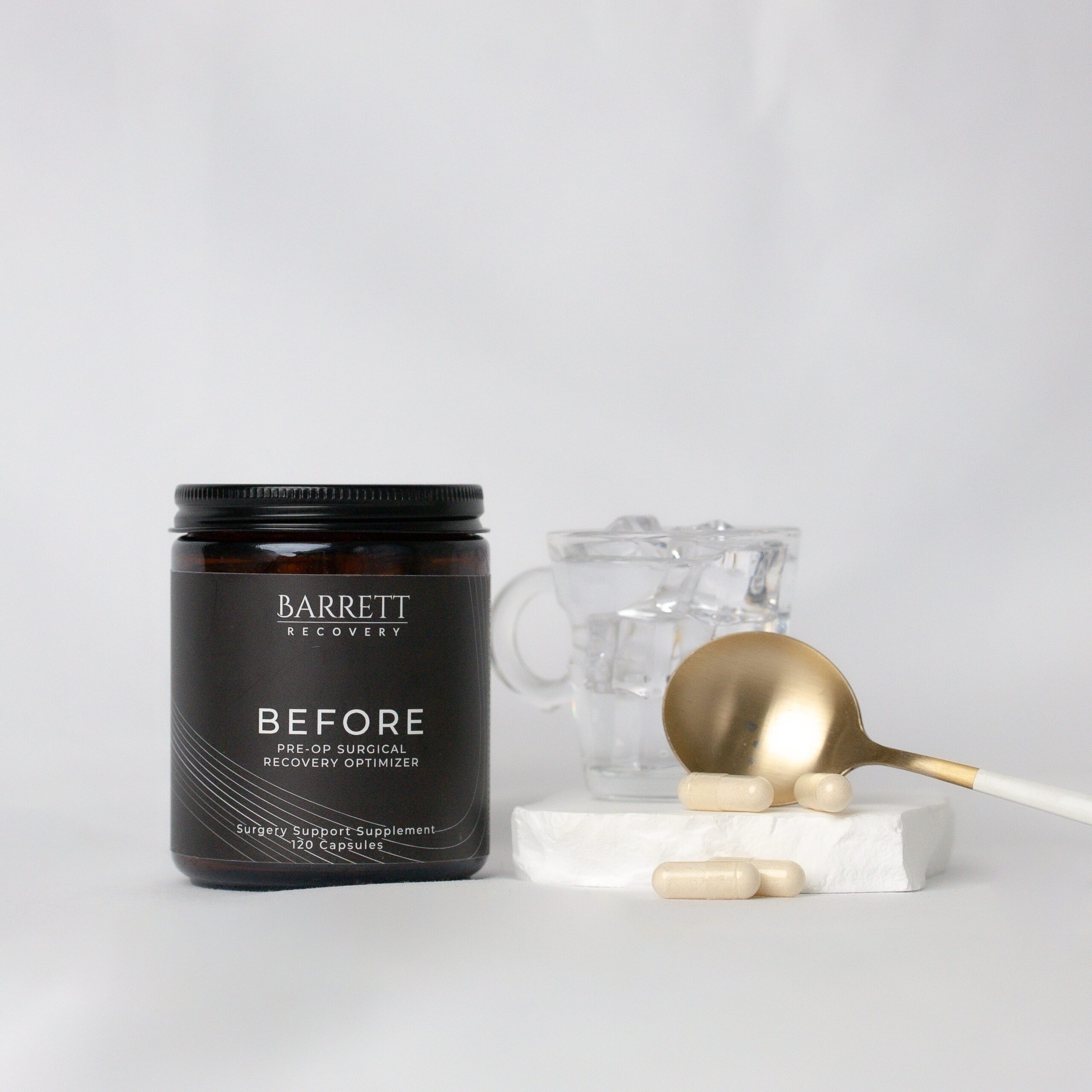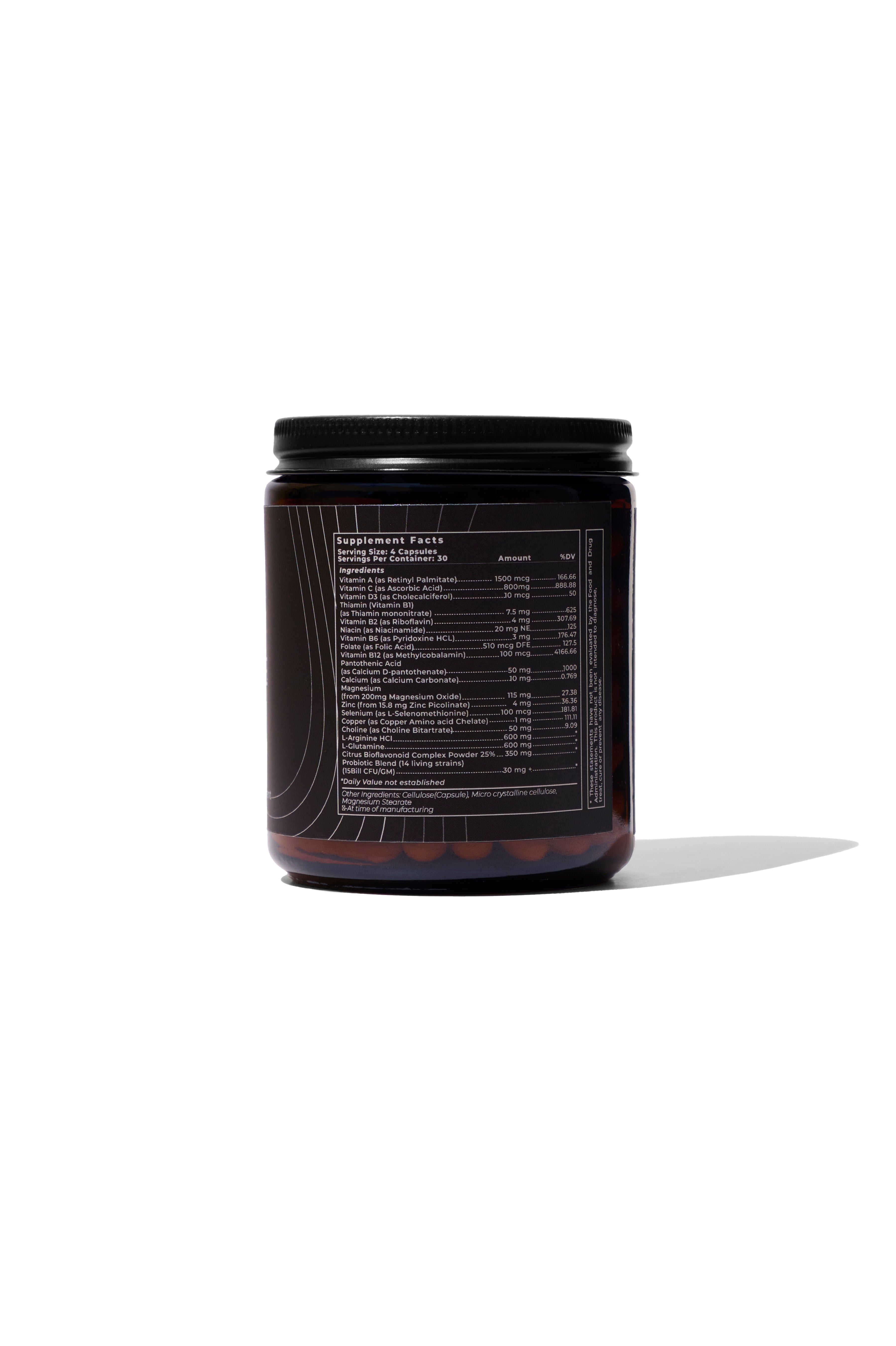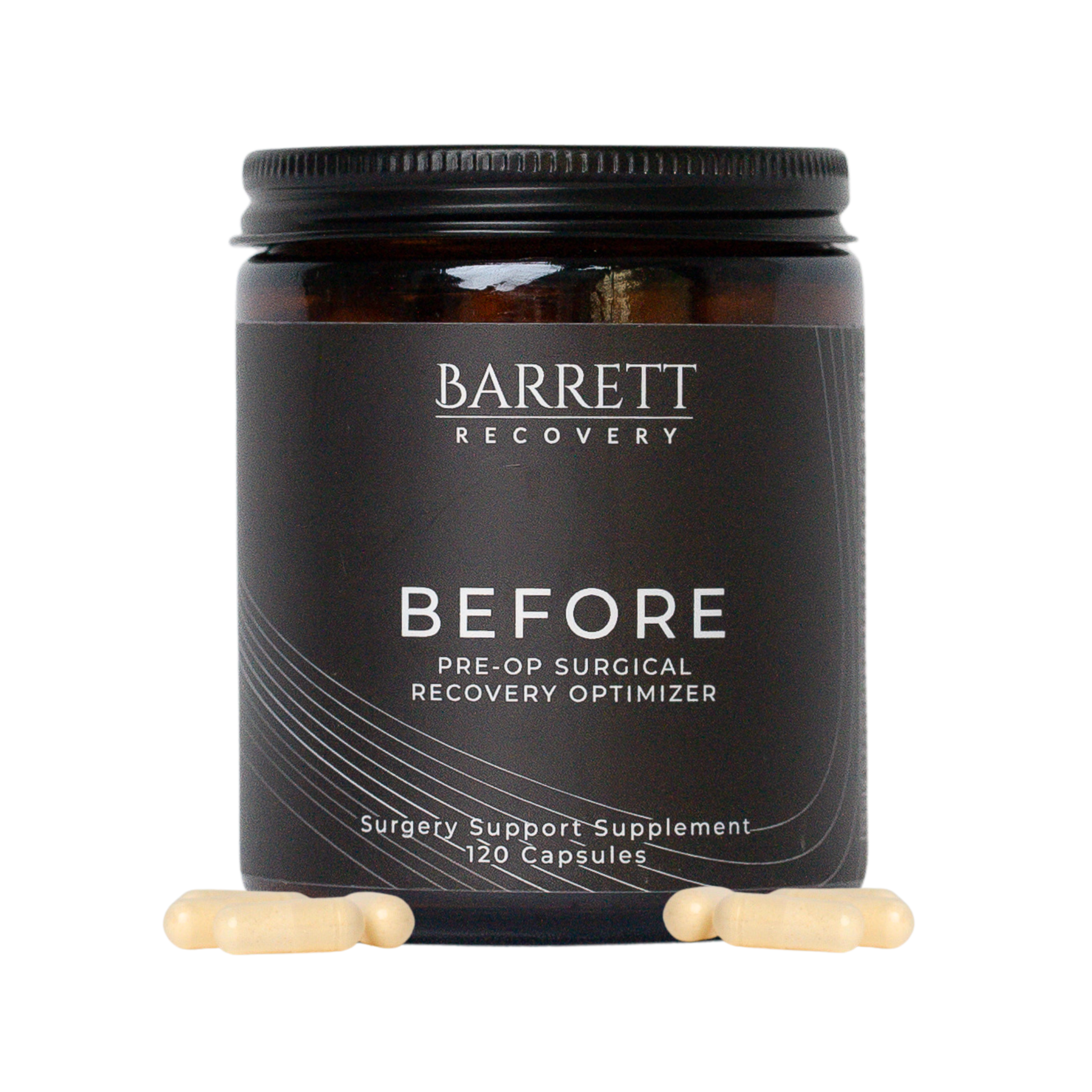





























































Common Curiosities
Preparing your body before surgery can help reduce the risk of complications, improve recovery time, and enhance the outcome of the procedure. A well-prepared body is better equipped to handle anesthesia, inflammation, and post-op healing.
Ideally, patients should begin preparing their body 2–4 weeks before surgery. This gives time to build nutritional reserves, strengthen the immune system, and address any underlying issues that may affect healing.
Yes, but it’s important to choose supplements that support immune function, reduce inflammation, and aid in tissue repair. Barrett Recovery’s Pre-Op Surgical Recovery Optimizer is expertly formulated with targeted ingredients designed to support and strengthen your body in preparation for surgery, enhancing recovery outcomes.
Beef tallow was never really "hiding" — it's just that over the years, it became less popular in mainstream cooking and skincare due to the rise of vegetable oils and other fats. In the mid-20th century, as vegetable oils like canola, soybean, and corn oil became more commercially promoted, animal fats like beef tallow were often overlooked or replaced because of health concerns related to saturated fats. This led to a decline in its use.
The problem with oils such as canola, soybean, and corn oil is that although they were marketed as being a "healthier" alternative to beef tallow or butter, they actually do more harm than saturated fats both when ingested and put on the skin topically.
However, in recent years, there's been a resurgence of interest in traditional fats like beef tallow, as people have shifted toward more whole-food and ancestral diets. Many people have rediscovered tallow’s benefits for both cooking and skincare, recognizing its high-quality fat profile and nutrient content. It’s also seen a revival among those focused on sustainability, as it's a byproduct of the meat industry that can be used effectively rather than wasted.
So, while beef tallow was never completely gone, it's certainly enjoying a renaissance today, especially as people return to more natural and ancestral approaches to food and self-care!
